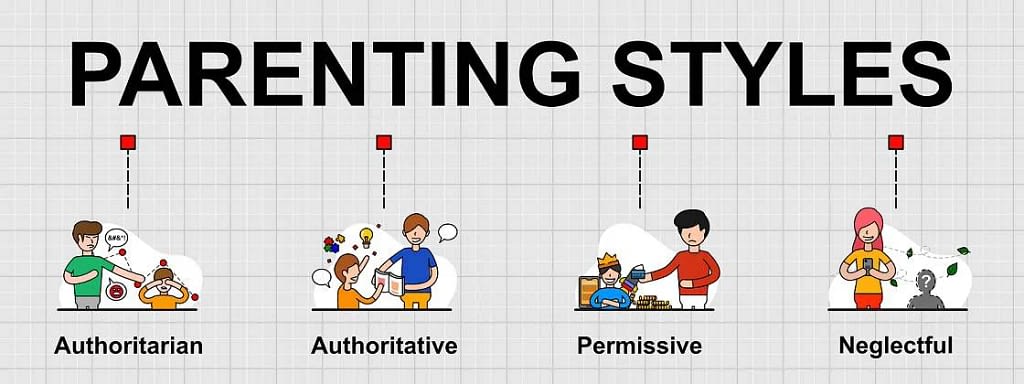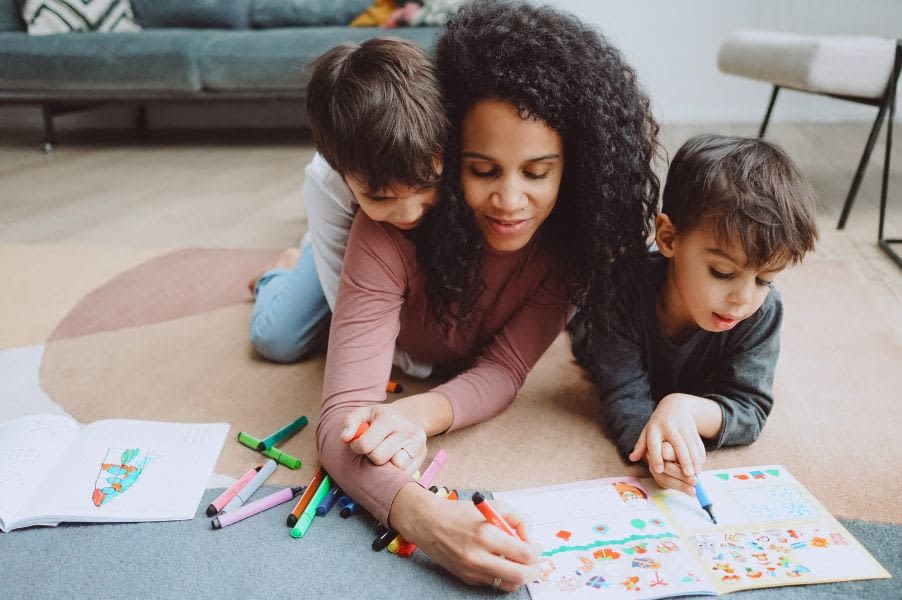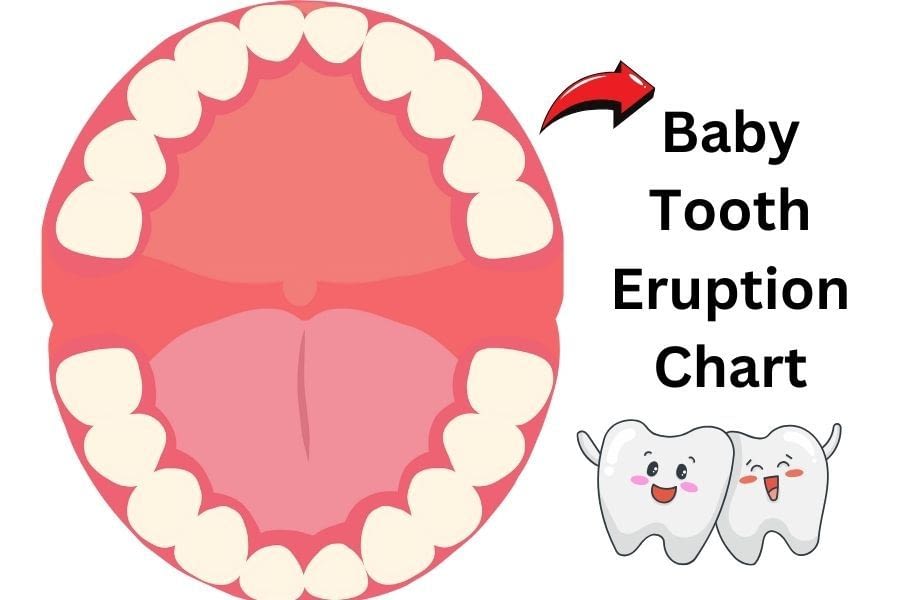As parents, understanding the best way to raise your child can be an ongoing struggle. Each generation brings new ideas of how children should be nurtured, but in today’s modern society, which seems more accepting and open than ever, what parenting style is most encouraged?
This blog post will examine each approach’s advantages and disadvantages for positively raising a child, from authoritative to permissive to uninvolved parent styles.
So, if you’re starting your journey as a parent or have already begun it years ago — read up! Understanding these different parenting models can help you determine which parenting style is most encouraged in modern America.
What is parenting style?
Parenting style refers to the typical approaches parents employ to raise their children and is a psychological concept encompassing various strategies used in child-rearing. It is the combination of behaviours a parent uses to raise their offspring. While different psychologists have categorized parenting styles in multiple ways, the widely accepted model classifies them into four main types: authoritative, authoritarian, permissive, and neglectful.
Importance of Parenting Styles
Parenting styles play a substantial role in shaping a child’s future. They lay a foundation for the child’s psychological and social development, influencing their personality, academic success, and relationship dynamics.
Impact on Psychological Development
The parenting style a child is exposed to significantly impacts their psychological development. For instance, children raised in a supportive and open environment exhibit higher self-esteem and confidence. They are more likely to have a positive self-image, be less prone to anxiety and depression, and showcase better resilience in the face of adversity.
Influence on Social Development
Parenting styles also dictate a child’s social development. Children raised in an environment where communication and empathy are valued tend to develop strong social skills. They are more likely to interact successfully, display empathy towards others, and maintain healthy relationships.
Effect on Academic Success
A notable correlation exists between parenting styles and a child’s academic success. Authoritative parenting, marked by high expectations and supportive guidance, often leads to children doing well in school. These children will likely be self-motivated, enjoy learning, and exhibit a strong work ethic.
Shaping of Personality
The parenting style experienced during childhood significantly shapes an individual’s personality. For example, children of authoritative parents often grow into responsible, independent, and confident adults. Those with permissive parents may become more impulsive and struggle with self-discipline.
It is important to remember that individual differences and contextual factors influence a child’s development. Parents must adapt their parenting style to the child’s unique needs and personality traits. Remember, successful parenting fosters a loving, supportive, and nurturing environment that allows the child to reach their full potential.

Which parenting style is most encouraged in modern America?
Each style varies in levels of responsiveness and demandingness, and they can profoundly impact a child’s development. Understanding these styles can guide parents towards more effective parenting methods based on their child’s needs.
In America, the Authoritative parenting style is often encouraged as the most effective approach. This parenting style balances warmth and strictness, combining clear rules and expectations with love, understanding, and support.
Authoritative parents encourage dialogue and foster independence in their children, promoting self-confidence and decision-making skills. Research has linked this style to positive outcomes in children, including academic success, strong social skills, and high self-esteem.
However, it’s important to remember that every child is different, and what works best may depend on their temperament and needs. Ultimately, the goal of any parenting style should be to promote the child’s overall well-being and development.
Authoritative parenting style
It is characterized by a high level of both responsiveness and demandingness. These parents set clear rules, but they also express warmth and explain their practices.
Authoritative parents, often seen as a middle-ground approach, establish rules and guidelines but are open to dialogue and explanation. They aim to balance independence with discipline, promoting an environment of mutual respect. This style is often encouraged to support a child’s self-esteem, freedom, and problem-solving skills. Let’s dive into the pros and cons of authoritative parenting.
Positive and Negative Impact of Authoritative Parenting
According to child development specialists, authoritative parenting is often considered the “gold standard” in parenting styles due to its balanced approach. This style promotes healthy, robust development, fostering self-reliant, self-controlled, and content children.
Positive Impact
- Enhanced Social Skills: Dr. Laura Markham, a clinical psychologist, suggests that children from authoritative households have better social skills because they learn empathy and respect through regular interaction with responsive, caring parents.
- Academic Success: Educational psychologist Dr. Diana Baumrind found a correlation between authoritative parenting and academic success. Traditional homes’ supportive climate and high expectations encourage a strong work ethic and value education.
- Mental Health: Dr. Nancy Darling, a leading researcher in the field of parenting and adolescent development, states that children raised by authoritative parents have lower instances of depression and anxiety, primarily due to the nurturing and supportive environment provided by these parents.
Negative Impact
Despite these positive effects, authoritative parenting has potential downsides.
- Perceived as Overbearing: While authoritative parents are responsive, they might sometimes be perceived as too involved or overbearing. This could lead to feelings of pressure and stress in children, especially as they grow older.
- High Expectations: The high standards set by authoritative parents might sometimes lead to feelings of disappointment or inadequacy in children if they struggle to meet them.
- Limited Flexibility: Although authoritative parents promote independence, their structure and rules can sometimes limit flexibility and spontaneity. The limits set by parents might create a rigid environment that discourages free thought.
It’s crucial to remember that no parenting style is perfect, and most parents will use a mix of different types. While having certain potential negatives, the authoritative approach is generally viewed positively due to its balanced indication of warmth and control.
Authoritarian parenting style
It is characterized by high demandingness but low responsiveness. These parents set rigid rules and expect strict obedience without much show of affection or communication.
Authoritarian parents follow a strict approach, emphasizing obedience and conformity. They establish rules with little explanation and expect their children to follow them without question. Consequences are typically used in place of dialogue and reasoning. While this style can instil discipline, it may suppress a child’s creativity and independence.
Positive and Negative Impact of Authoritarian Parenting
Authoritarian parenting, characterized by rigid rules and high demands, can have varied impacts on a child’s development.
Positive Impact
- Discipline and Conformity: According to Dr. Gwen Dewar, a biological anthropologist and founder of Parenting Science, children raised by authoritarian parents may learn discipline and conformity to rules, which can help them navigate structured environments such as schools.
- Respect for Authority: Dr. Dewar also suggests that these children may develop a strong affection for authority, which can be advantageous in specific societal and professional contexts.
Negative Impact
However, the negative consequences often outweigh the positives.
- Lower Self-Esteem: Dr. Robert Pianta, a professor of psychology at the University of Virginia, mentions that children from authoritarian homes may struggle with self-esteem issues due to the lack of warmth and responsiveness from their parents.
- Higher Levels of Depression: Dr. Darling’s study shows that children of authoritarian parents have higher levels of depression and anxiety due to lack of emotional support and constant pressure.
- Defiance and Aggression: Dr. Baumrind’s research also suggests that these children may become more defiant and aggressive, as harsh discipline and control can lead to resistance and rebellion.
While authoritarian parenting may instil discipline and respect for authority, it is often at the cost of a child’s self-esteem and mental health. Parents need to balance rules and warmth to foster a healthier psychological development in their children.

Permissive parenting style
It is characterized by high responsiveness but low demandingness. These parents are lenient, avoid setting rules, and often behave more like a friend than a parent.
They allow their children to make their own decisions with little guidance. While this can foster independence and creativity, it may also lead to a lack of discipline and self-control.
Positive and Negative Impact of Permissive Parenting
Permissive parenting, typified by high responsiveness and low demandingness, can lead to various child development outcomes.
Positive Impact
- Promotes Creativity and Independence: Dr. Susan Newman, a social psychologist specializing in parenting, suggests that permissive parenting may cultivate creativity and independence in children, as they are free to explore and make their own decisions.
- Fosters Open Communication: According to Dr. Newman, children raised by permissive parents often have open lines of communication with their parents. This can develop their communication skills and foster a solid parent-child relationship.
Negative Impact
However, the cons of permissive parenting are significant.
- Lack of Self-Discipline: Dr. Lisa Damour, a clinical psychologist and author, warns that children from permissive households may struggle with self-discipline as they are not accustomed to boundaries and limitations.
- Risk of Entitlement: Children raised by permissive parents can become entitled and expect to get their way, as per research conducted by Dr. Newman. This might lead to difficulties in social interactions.
- Poor Academic Performance: A study by Dr. Baumrind showed that children from permissive homes often have lower academic performance, likely due to the lack of discipline and structure.
While permissive parenting may cultivate creativity and foster open communication, it might also lead to an absence of self-discipline, entitlement, and lower academic performance. Parents must balance freedom and structure to promote healthy development in their children.
Uninvolved Parenting style
It is characterized by low responsiveness and low demandingness. These parents are often neglectful, lack emotional involvement, and do not set or enforce rules.
Uninvolved parents only ask a little of their children but don’t give much in return. They tend to be neglectful but not intentionally so; they are not involved in their child’s life. While this hands-off approach provides a lot of freedom, it often results in children feeling neglected and struggling with self-esteem issues.
Positive and Negative Impact of Uninvolved Parenting
Uninvolved parenting, marked by low emotional involvement and lack of rules, can severely impact a child’s development.
Possible Positive Impact
- Development of Independence: Dr. Alex Barajas-Murphy, a child and family psychologist, suggests that children of uninvolved parents might develop a high degree of independence, as they often need to navigate life independently.
Negative Impact
However, the detrimental effects of uninvolved parenting far outweigh the possible positives.
- Low Self-Esteem: Dr. John Mayer, a clinical psychologist, states that children who grow up in uninvolved households often suffer from low self-esteem and feelings of rejection due to their parents’ lack of emotional support.
- Poor Academic Performance: A study by Dr. Diana Baumrind reveals that children of uninvolved parents often exhibit poor academic performance, likely due to the lack of parental involvement or guidance.
- Increased Risk of Substance Abuse: Research led by Dr Suniya Luthar shows that children raised by uninvolved parents might be more likely to engage in risky behaviours, including drug and alcohol abuse, due to the absence of parental supervision.
Uninvolved parenting, although potentially fostering independence, can significantly harm a child’s self-esteem, academic performance, and overall well-being. Experts advocate for a balanced parenting approach, ensuring emotional involvement and appropriate rule-setting.
Each style reflects different naturally occurring patterns of parental values, practices, and behaviours and a different balance of responsiveness and demandingness.

How To Pick A Parenting Style?
Choosing a parenting style is a personal decision that should be tailored to your family’s unique needs and circumstances. Determining the most suitable parenting style is often a matter of trial and error. Here are a few tips to help you navigate this process:
- Reflect on your upbringing: Your own childhood experiences can be a valuable source of insight. Reflect on the parenting styles your parents used and how they influenced you. What aspects would you like to replicate or avoid?
- Consider your child’s temperament: Each child is different, and what works for one may not work for another. Consider your child’s personality, needs, and responses to other approaches.
- Balance firmness with warmth: Like the authoritative approach, a balanced parenting style can foster a healthy relationship with your child. It combines clear boundaries and expectations with warmth, understanding, and open communication.
- Adapt and adjust: Remember, no parenting style is set in stone. Be willing to adapt your parenting style as your child grows.
- Understand your child’s needs: Different children have different needs. What works for one child might not work for another. So, observe your child, understand their personality, and mold your parenting approach accordingly.
How does culture affect parenting styles?
Culture plays a significant role in shaping parenting styles, influencing what behaviours parents value and how they discipline their children. Each culture has unique norms and expectations for child-rearing, ranging from the values instilled in children to the methods used to punish them.
For instance, Western cultures often emphasize independence and self-expression, which may lead to a more permissive or authoritative parenting style. In contrast, Eastern cultures may stress obedience and respect for authority, leading to a more authoritarian approach.
However, it’s crucial to note that these are broad generalizations, and there can be considerable variation within each culture. The cultural context doesn’t dictate a particular parenting style but provides a framework for developing and understanding parenting practices.
Understanding the cultural factors can encourage tolerance for diverse parenting practices and highlight that there is no ‘one-size-fits-all’ approach to raising children.

Effects of Parenting Styles on Child Behavior
Parenting styles significantly influence a child’s behaviour and overall development. Authoritarian parenting often results in obedient and proficient children, but they may rank lower in happiness, social competence, and self-esteem. Children raised by permissive parents tend to struggle academically and exhibit behavioural problems, as they lack the discipline and structure needed for self-control.
Children of authoritative parents are generally happier, successful, and capable of making sound decisions. They are more confident and possess strong social and academic skills. However, they may also experience pressure to meet high expectations.
Children exposed to an uninvolved parenting style often lack self-esteem, perform poorly in school, and exhibit frequent behaviour problems. They may also struggle with self-control and have difficulty forming healthy, long-term relationships.
Final Thoughts on Best Parenting Style
Parenting is an intricate journey filled with unique challenges and rewards. It’s important to remember that there is no ‘perfect’ parenting style that fits all situations. Instead, effective parenting is often a blend of different types adapted to the child’s needs and the family’s unique circumstances.
The key is to provide a supportive environment that promotes your child’s growth and development, aids them in building resilience, and prepares them for the future. Be conscious and reflective of your parenting practices. Be willing to learn, adapt, and grow along with your child.
Remember, the goal isn’t to attain perfection but to raise a confident, compassionate, and responsible individual. Seeking professional advice can also be beneficial when in doubt. Ultimately, every child is unique, and every parenting journey is distinct. Embrace your journey, trust your instincts, and enjoy the process of nurturing your child’s potential.
1 Visit today





